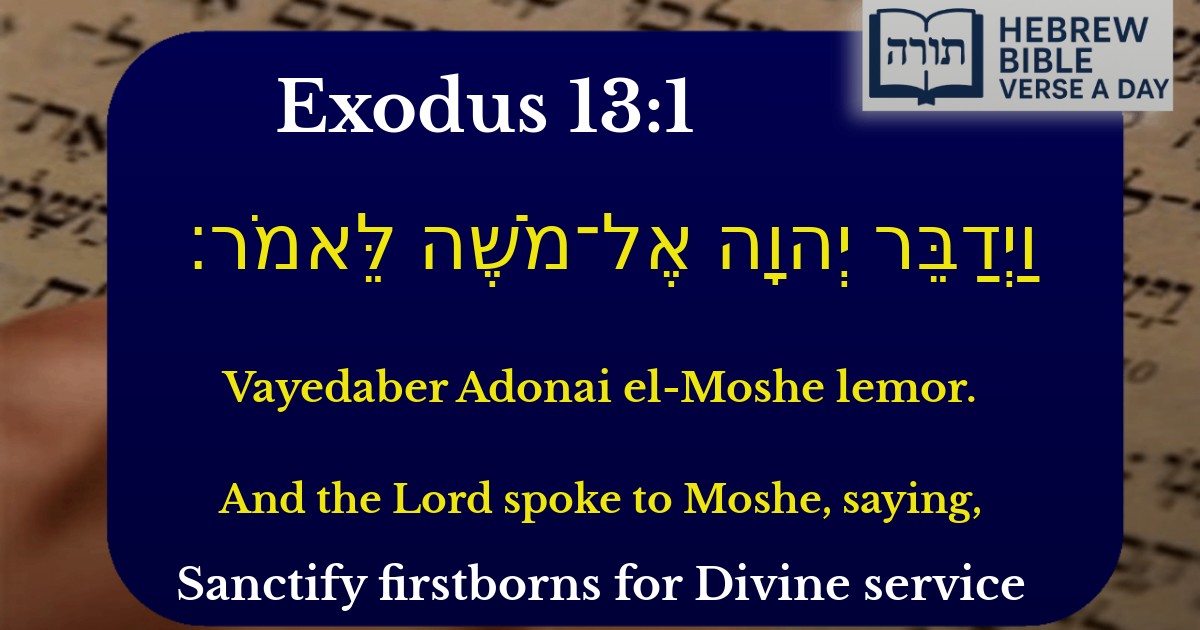Join Our Newsletter To Be Informed When New Videos Are Posted
Join the thousands of fellow Studends who rely on our videos to learn how to read the bible in Hebrew for free!
Hebrew Text
וַיְדַבֵּר יְהוָה אֶל־מֹשֶׁה לֵּאמֹר׃
English Translation
And the Lord spoke to Moshe, saying,
Transliteration
Vayedaber Adonai el-Moshe lemor.
Hebrew Leining Text
וַיְדַבֵּ֥ר יְהֹוָ֖ה אֶל־מֹשֶׁ֥ה לֵּאמֹֽר׃
וַיְדַבֵּ֥ר יְהֹוָ֖ה אֶל־מֹשֶׁ֥ה לֵּאמֹֽר׃
🎵 Listen to leining
Parasha Commentary
📚 Talmud Citations
This verse is not quoted in the Talmud.


The Divine Communication to Moshe
The verse "וַיְדַבֵּר יְהוָה אֶל־מֹשֶׁה לֵּאמֹר" ("And the Lord spoke to Moshe, saying") appears frequently in the Torah, marking the transmission of divine commandments. Rashi (on Shemot 6:2) explains that this phrasing emphasizes the clarity and directness of Hashem's communication with Moshe, distinguishing it from other forms of prophecy. Unlike other prophets who received messages through visions or dreams (Bamidbar 12:6-8), Moshe heard Hashem's words "face to face," with unparalleled clarity.
The Significance of "לֵּאמֹר" ("Saying")
The word "לֵּאמֹר" is often interpreted by commentators as an instruction for Moshe to relay the message to Bnei Yisrael. The Ramban (on Bereishit 8:15) notes that this term implies a chain of transmission—Hashem speaks to Moshe, who then conveys the words to the people. The Talmud (Yoma 4b) further elaborates that every divine communication included both the original message and the command to transmit it, ensuring accuracy in transmission.
Moshe's Unique Role as Intermediary
The Midrash (Shemot Rabbah 28:6) highlights that Moshe's role as the primary receiver of divine speech was a singular distinction in Jewish history. The Rambam (Hilchos Yesodei HaTorah 7:6) codifies this idea, stating that Moshe's prophecy was fundamentally different from all others, as he alone communicated with Hashem "awake and standing," without any intermediary or obscurity.